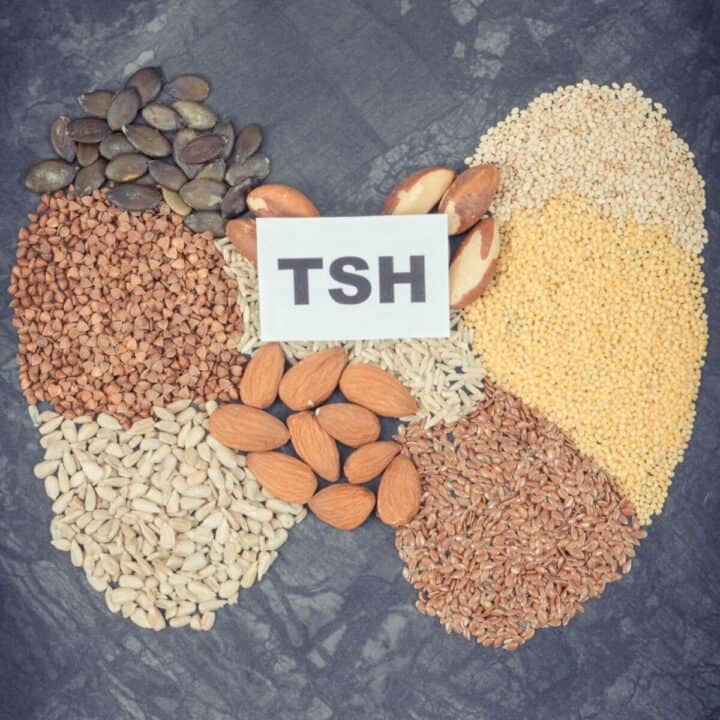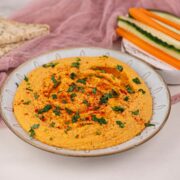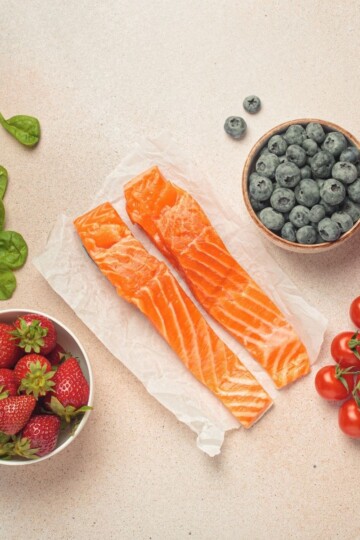Millions of people suffer from common forms of thyroid conditions. Instead of going the traditional medication route, there are some natural ways to improve your thyroid health. Let's talk about the certain foods bad for thyroid health and why you should avoid them if you have thyroid disease or issues with your thyroid.

Table of Contents
🩺 Foods To Avoid With Thyroid Disease
Women are more likely than men to develop some type of thyroid condition. But many are not even aware they are suffering from it until it begins to affect their lives.
These conditions can range from an overactive or under-active thyroid condition, and medication is often required to feel their best.
For natural treatment, you should find a functional and integrative medicine practitioner to help keep your thyroid condition in check and in complete control.
But one of the simplest, most natural ways to support your thyroid health is to eat healthy foods and avoid the unhealthy ones.
🥦 Cruciferous Vegetables? Yes Or No?
You avoid eating large amounts of brassica or cruciferous vegetables, including turnips, cabbage, rutabagas, Brussels sprouts, cauliflower, broccoli, and bok choy.
Although they contain essential minerals and vitamins and are full of nutrition, they can be goitrogenic.
What does that mean exactly?
Well, these veggies have been thought to interfere with how your thyroid uses iodine. This is especially true for patients who consume a lot of them frequently.
The benefits associated with eating cruciferous vegetables far outweigh the negatives, including if you have thyroid issues. But the question remains, "How much is too much"?
Studies have indicated that you would have to eat excessive amounts of cruciferous vegetables to interfere with iodine and hormone production within the thyroid.
There has only been one study where a woman developed hypothyroidism due to eating an excessive amount of bok choy. She ate 2 to 3 pounds of raw bok choy daily.
So, unless you are about to eat that much cruciferous veggies, there is no evidence to support limiting these nutrient dense vegetables.
So, eat about 30 grams of brassica or cruciferous vegetables a day. Cooking or steaming these foods will help reduce any goitrogenic effect.
If you prefer to use vegetables like these in your juices, be mindful of how many cruciferous vegetables you include. It is far easier to juice larger quantities of cruciferous vegetables, so be mindful of how much you are juicing.
🍟 Limit Carbs
Unless you are following a ketogenic or paleo diet, you need to remember that carbs can exacerbate your thyroid condition. Your thyroid can be the first organ to be affected.
📥 GET THIS RECIPE IN YOUR INBOX 📥
You need to eat foods from all food groups in moderate quantity. Think of eating a healthy, well balanced diet. If you love carbs, focus on nutrient dense foods, like high fiber sweet potatoes.
🫛 Soy Intake And Your Thyroid
Are soy products foods to avoid with thyroid issues? Well, let's discuss this hot topic.
The isoflavones found in soy may stop the thyroid gland from functioning properly and a huge amount of soy may worsen hyperthyroidism.
This can also lead to iodine deficiency in many adults. Even if you replace meat with soy products, such as tofu, soy yogurt, soy milk and more, it can still affect your thyroid. This is also especially true if you have a genetic predisposition toward thyroid issues.
If you take a thyroid medication, you need to take it on an empty stomach and wait anywhere from 30 minutes to an hour before eating.
⁉️ Too Little Iodine Or Too Much Iodine
Many thyroid patients have switched from iodized salt to Himalayan salt or sea salt. This is because iodized salt-and any excess amount of iodine-can be a trigger for hypothyroidism.
It is beneficial to supplement seaweed and fresh ocean fish for iodine supplements, especially if you have hypothyroidism.
However, while iodine deficiency is only one cause of hypothyroidism, if you are not iodine-deficient, there is no need to take iodine supplements.
🥖 Gluten
What about gluten? Does gluten fall into that category of foods to avoid with thyroid disease issues?
When you limit the number of gluten-containing foods you consume, you decrease the inflammation in your body. Limiting or avoiding gluten naturally improves Hashimoto's thyroiditis, which is an autoimmune thyroid condition.
However, a gluten-free diet alone cannot reverse Hashimoto's thyroiditis.
There is evidence, however, that celiac disease and Hashimoto's can coexist respectively. This is when individuals would receive the most benefit from the complete removal of gluten-free foods and adhere to a completely gluten-free diet.
Many individuals have improved their symptoms and felt a lot better after consistently following a gluten-free diet. It is much easier to follow a gluten-free diet these days than it used to be.
There are many gluten-free options for most of your favorite foods. Even if you don't go gluten-free, be mindful of many processed products in your diet, because all of them increase your sugar level.
🗣️ Let's Discuss Foods You Should Avoid With Thyroid Disease
Did you know that some of these common foods should be avoided if you have thyroid issues? Let me know in the comment section below.
You can also connect with me @EatYourNutrition on Instagram. I love seeing your photos. #EatYourNutrition #LauraVillanueva


















Comments
No Comments